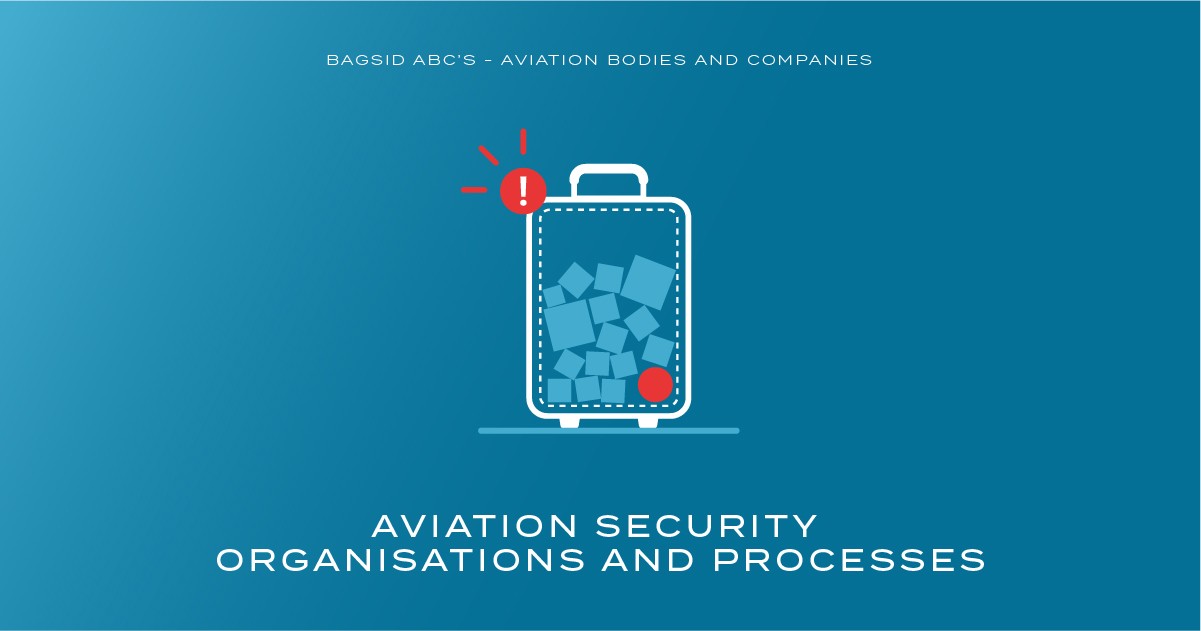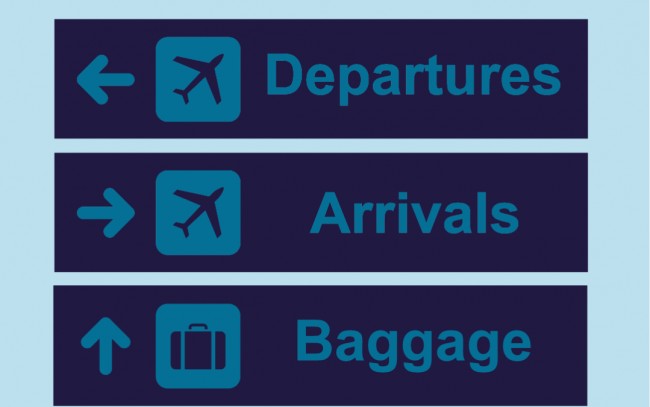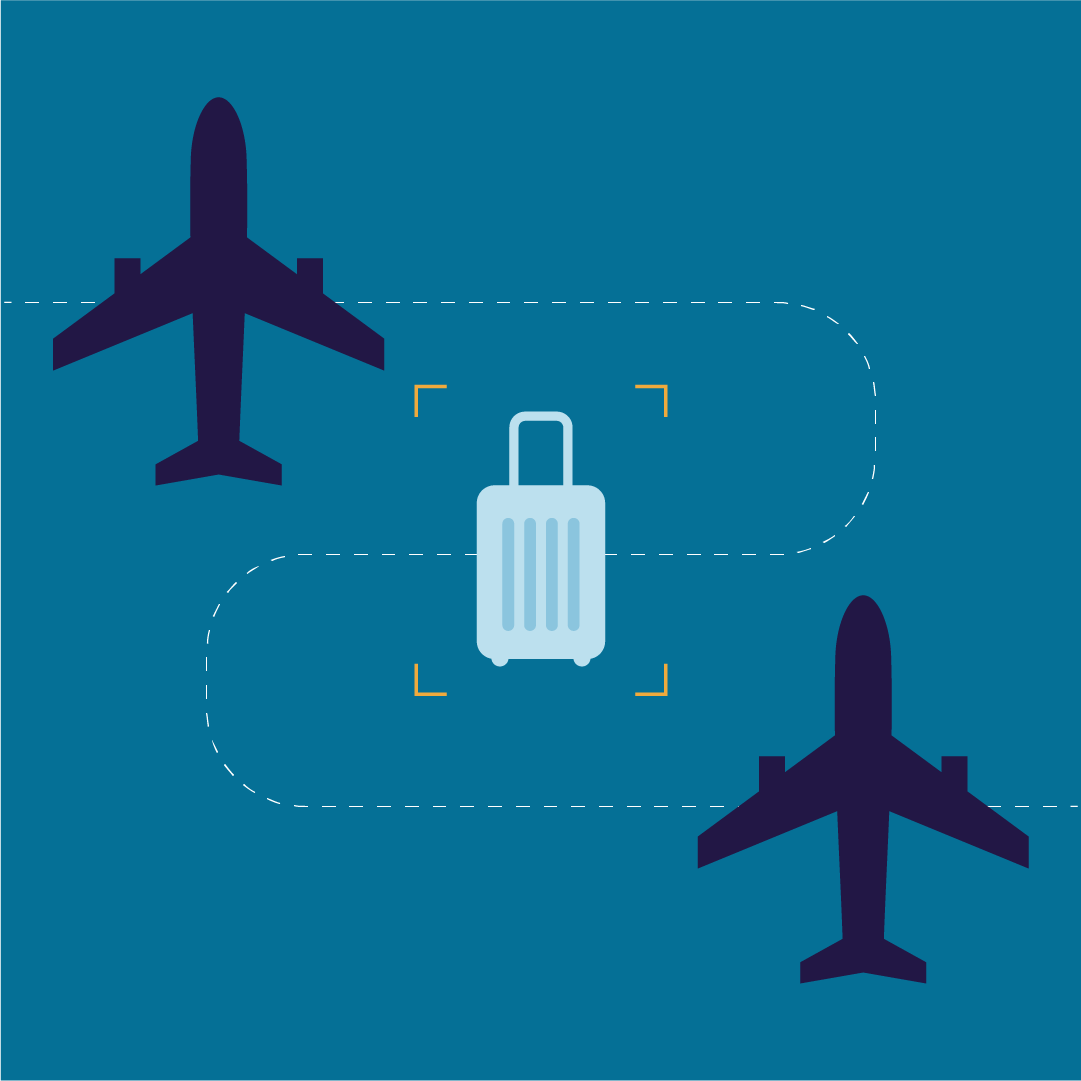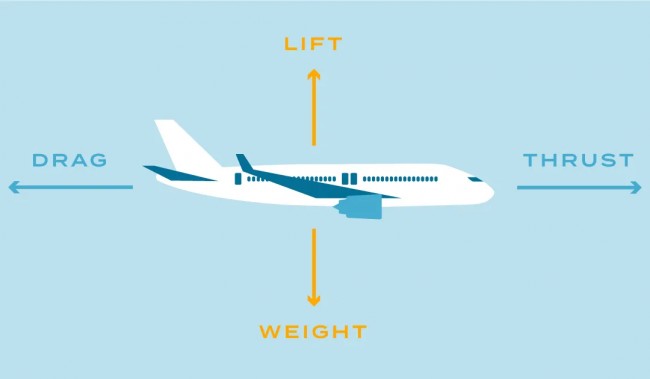13 April, 2023
Airports are one of the most heavily guarded places in the world, with numerous security measures in place to ensure the safety of passengers, crew, and flights.

In recent years, there have been significant developments in global airport and aviation security processes, with the implementation of new regulations and technologies.
At BagsID, we are big fans of introducing technology within the aviation industry in order to make travellers’ lives and travels more streamlined, sustainable and more enjoyable overall. A significant part of the passenger and bag journey includes security.
Here are some of the aviation security organisational bodies that we continue to work with and ensure our technology is aligned with.
International Civil Aviation Organisation - ICAO
The International Civil Aviation Organisation (ICAO) is a specialised agency of the United Nations responsible for setting standards and regulations for international air transport. Working with 193 countries to help align travel regulations to be more safe, secure and sustainable globally is the main mission of ICAO.
ICAO is involved in a multitude of innovative processes that improve aviation safety, security, and environmental protection. ICAO works to ensure that its aviation systems are in compliance with international standards and provides training and support to help countries improve their aviation systems.
ICAO is responsible for several important aviation security initiatives, including Annex 17 to the Convention on International Civil Aviation, which sets guidelines for airport security, and the Universal Security Audit Program, which assesses compliance with ICAO security standards.
In addition, ICAO researches new air transport policy, innovations for the aviation industry, and identifies new priorities for the aviation industry through work with stakeholders. ICAO is an extremely important aviation body to BagsID. With baggage loss and tracking being a priority amongst many aviation partners, BagsID technology will be endorsed by airports and stakeholders throughout ICAO.
Annex 17
ICAO introduced Annex 17 to the Convention on International Civil Aviation. Annex 17 provides guidelines for airport security. It covers a broad range of topics, including protecting airport facilities, screening passengers and their baggage, and securing cargo and mail.
Annex 17 also requires airports to conduct security screening of all passengers, their carry-on baggage, and checked baggage. This screening must be carried out using approved equipment and procedures to ensure that no prohibited items are brought onto an aircraft.
This is where we come in. We are very serious about ensuring all of our baggage technology is up to standards set by ICAO and Annex 17.
Transportation Security Administration (TSA)
The Transportation Security Administration (TSA) is a U.S. government agency responsible for the security screening of passengers and baggage at U.S. airports. TSA is responsible for developing and implementing security procedures, training airport security personnel, and overseeing the use of security equipment, such as X-ray machines and body scanners.
TSA also works with airlines and airports to develop and implement security measures to address new and emerging threats to aviation security, such as the use of explosives in electronic devices. TSA has a strategy that follows main goals of improving security, improving and safeguarding transportation, accelerating action across the nation-set practices, and committing to people.
The work that TSA has done within airports is extremely important for us here at BagsID, they have been a positive example for introducing secure technology and procedures into airports, something we will be doing with baggage in airports.
TSA has stated that they are committed to being innovative and finding creative approaches that will make threats across travel minimal for individuals. TSA at its core is an aviation body that works for individual people by developing technology and regulation for the aviation industry - very similar to BagsID!
European Union Aviation Safety Agency
The European Union Aviation Safety Agency (EASA) is responsible for promoting and maintaining high levels of safety and environmental protection in the European aviation industry.
EASA develops and implements aviation safety and security regulations, and provides technical and regulatory support to help countries meet these standards. Part of EASA’s remit includes ensuring harmonies and collaboration between differing regulations, companies, and new technology within the aviation industry.
In addition to safety and security, EASA is also responsible for regulating other areas of aviation, such as air traffic management, environmental protection, and licensing of aircraft and personnel. EASA is a very trusted security body and promotes European and global safety standards throughout the aviation industry.
EASA is important to BagsID because we are aiming to help with environmental concerns along with our technology. As the aviation industry grows and becomes more innovative to lessen the environmental damage caused, new technologies and practices like ours need to keep environmental safety in mind.
Beneficiaries of EASA include air operators, airlines, maintenance companies, air traffic controllers, airports, training organisations, and civil aviation authorities. As BagsID is involved with the European and international civil aviation community, EASA is an organisation that can help companies like BagsID get information about passengers, EU citizens and the general public to help inform our strategies. And, EASA helps connect BagsID to other aviation authorities and industry professionals.
Airports Council International (ACI)
The Airports Council International (ACI) is a global trade association representing over 2,000 airports worldwide. ACI works closely with member airports to promote best practices in airport management and operations, including airport security. The main missions of ACI are to promote industry innovation, support capacity of airports to provide safe air transport, represent airports interests within policymaking, and foster collaboration between airports, governments, industry stakeholders, and international organisations.
ACI is responsible for developing and implementing security guidelines and standards and provides training and support to help airports implement these measures. In addition, ACI works with other aviation organisations to develop and implement industry-wide security measures, such as those related to the use of explosives in electronic devices.
ACI advocates for airport service quality from the perspective of customers and travellers and employees. Data from customer service and employee satisfaction is identified alongside the work that ACI does.
BagsID notices the hard work of the ACI, and plans to follow in their leadership and implementation pathway as our technology is placed within more airports. ACI works alongside similar global partners and is an imperative aviation security body to work with that represents airports.
International Air Transport Association (IATA)
The International Air Transport Association (IATA) is a trade association representing over 290 airlines worldwide. IATA is responsible for developing and implementing industry standards and practices, including those related to aviation security.
IATA represents 83% of total air traffic and is an aviation body that recognises safe, secure and sustainable air transport and aviation. In addition, IATA has four industry priorities that align with BagsID values:
Industry Digital Transformation
Operations, Safety & Security
Environment, Sustainability and Social Responsibility
A Strong Association
IATA works closely with airlines, airports, and governments to develop security standards and guidelines, and provides training and support to help member airlines implement these measures.
In 2018, IATA introduced Resolution 753, which requires all member airlines to track baggage from check-in to arrival to reduce the number of lost or mishandled bags.
Baggage Security - IATA Resolution 753
The aim of this resolution is to reduce the number of lost or mishandled bags, which can cause inconvenience and frustration for passengers.
Under Resolution 753, airlines must implement a tracking system that records the location of each piece of baggage at key points in its journey. This includes when it is checked in, loaded onto the aircraft, transferred between flights, and delivered to the baggage reclaim area at the destination airport.
The tracking system used by airlines must be able to provide real-time information on the location of each piece of baggage. This information must be available to the airline and the passenger throughout the journey.
The introduction of Resolution 753 has led to the development of new technologies to improve baggage tracking. These include radio frequency identification (RFID) tags, which can be attached to each piece of baggage and used to track its location.
Some airports have also installed baggage handling systems that use automated scanners to track the movement of bags through the airport.
BagsID has created one of these systems that airlines and airports can implement to truly help track bags and reduce the number of lost baggage!
Security Bodies Working Together
These organisations work together to develop and implement security measures, regulations, and guidelines to prevent threats to aviation security.
By working together and sharing information, these organisations are able to develop and implement effective security measures that ensure the safe and secure operation of air travel.
These regulations are constantly evolving, with new technologies and procedures being developed to improve security and streamline airport operations. As the aviation industry continues to grow, it is essential that these security measures are effective and up-to-date to maintain the highest standards of safety and security for all passengers and crew.
How BagsID Fits In
BagsID works to help the aviation industry in full. Airlines, airports, airport staff, and travellers are all a part of making sure BagsID is efficient.
The technology that BagsID has created wouldn’t be feasible to incorporate into airport systems without these security organisational bodies’ previous work in updating technology for airports. In addition, security is a main priority for BagsID.
BagsID technology’s main aim is to be compliant with all security measures in place and is ready to be added to any airport or airline that is ready to implement an all-encompassing solution to tracking baggage.
Related articles
Plane talking: Check-in and bag drop
27 September, 2021
As part of our series on the passenger journey we take a look at check-in and bag drop.
Navigating the Future: SaaS and B2B Companies Revolutionising Baggage Handling in 2024
15 January, 2024
In the fast-evolving landscape of travel and logistics, baggage handling has emerged as a critical aspect that demands i...
Tech Talk: Load and Balance Systems – (LBS)
14 April, 2022
Here we take a look at Load and Balance Systems (LBS). The final piece in the jigsaw that ensures that the plane gets of...



